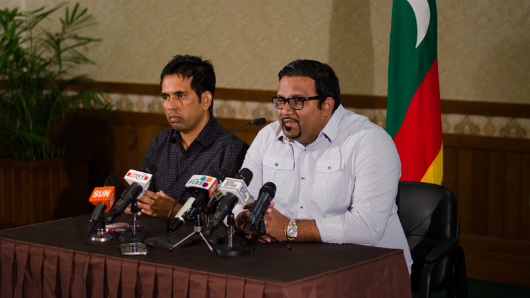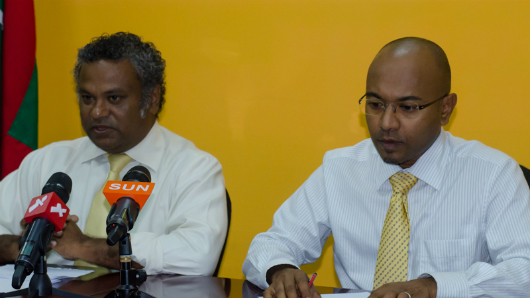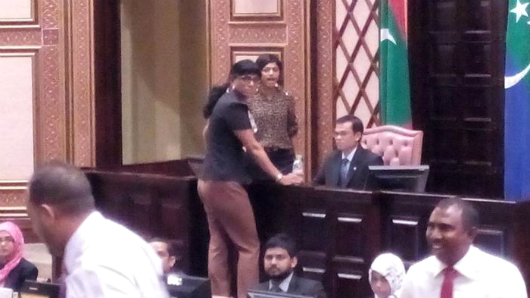Transparency Maldives has called on the government to display more transparency in order to avoid “economic and political repercussions stemming from the water crisis”.
“The Government must publicly provide a breakdown of the estimated US$20 million (more than MVR300 million) needed to overcome the crisis, and how the government intends to spend it,” read a press release from the anti-corruption NGO.
Transparency’s statement follows the announcement this week that the government is seeking donations in order to meet the costs of the fire that crippled Malé’s sole desalination plant on December 4.
“Furthermore, the decision to seek donations from the public raises questions given that MWSC is a private, profit-making corporation with 80 per cent government shares,” said Transparency.
Minister of Tourism Ahmed Adeeb said today that the fund – which has already received support from both foreign and domestic donors – was not intended for the MWSC, but would be utilised by the government.
The opposition Maldivian Democratic Party (MDP) has also criticised the fund, stating that the government should only be able to demand US$20 million after they have decided how it is going to be spent.
“The MDP along with the people of the Maldives demands answers from the government regarding the US$ 20 million fund,” said party Vice Chairperson Ali Niyaz at a press conference today.
“Where is the money going to go to? Why have not seen a breakdown on how the money is going to be spent? Will this be a new ring in the chain of corruption of the government?” he asked.
Additionally, party lawyer Hassan Latheef expressed concern that unnamed donors were giving large amounts of money to the fund.
“Relevant details should be provided as per the law on money laundering and corruption prevention law. Money laundering and financing for terrorism through donors is something which exists in the Maldives.”
Transparency has also called for an independent technical investigation to be conducted, and results to be made public before effective and preventative mechanisms are put in place.
“The investigation must scrutinise MWSC’s risk mitigation policy and asset management plan,” said the NGO.
With 130,000 citizens of the capital left without water, the government has said it could take up to two weeks to fully repair the extensive damage. President Abdulla Yameen has said that there could have been no back up plan for a “disaster of this magnitude”.
Former President and opposition leader Mohamed Nasheed has also called for an inquiry into the fire, suggesting that the Danish government previously recommended keeping 21 days of reserves in the capital.
Transparency noted that the crisis had demonstrated “the interminable relationship between good governance and citizens’ right to essential human needs,” calling for greater regulation of state-owned enterprises.
“Transparency Maldives believes that it is the responsibility of the government to hold accountable and to ensure that MWSC and other companies that provide essential services, such as the State Electric Company Limited (STELCO) and FENAKA Corporation Limited, have mechanisms in place to review their working procedures so that similar incidents can be avoided in the future.”
MDP lawyer Latheef also criticised what he perceived to be the government’s attempts to pass the constitutional responsibility for water provision to the MWSC.
Related to this story
No fall back for disaster of this magnitude: President Yameen
Government seeks US$20 million in donations to repair Malé’s desalination plant
People’ Majlis disrupted after disorder over water crisis
UN Maldives commends government’s response in water crisis, opposition condemns


